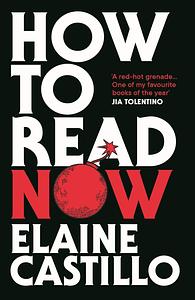You need to sign in or sign up before continuing.
Take a photo of a barcode or cover
informative
funny
hopeful
informative
reflective
medium-paced
I struggled with this book at a lot of points. I learned a lot when the author was discussing theories. I was just lost in the deep dive critiques of various media (some obscure).
It was interesting - I bought this book secondhand and the previous owner annotated it (and seemingly really liked the book overall). But the sections that I was lost in also did not have annotations. So maybe I got the lessons as my book friend.
It was interesting - I bought this book secondhand and the previous owner annotated it (and seemingly really liked the book overall). But the sections that I was lost in also did not have annotations. So maybe I got the lessons as my book friend.
challenging
funny
informative
reflective
medium-paced
challenging
informative
reflective
medium-paced
challenging
reflective
slow-paced
Moderate: Racism
challenging
informative
inspiring
reflective
slow-paced
Elaine Castillo’s writing is so intelligent with a vibrating core of biting humor throughout, I cannot help but feel in awe.
While some essays are quite dense with media, literature, and pop culture I’m not familiar with, what I do know is this book has definitely inspired me to be a better reader. Not only that but to meet our world with a more curious, decolonized lens that goes beyond “positive representation” and all the other neoliberal nonsense corporations like Marvel try to spoonfeed to us as progressive movements.
I will be thinking about this book and Castillo’s voice for a long time, and if it ever begins to fade, I know I’ll be eager to revisit it.
While some essays are quite dense with media, literature, and pop culture I’m not familiar with, what I do know is this book has definitely inspired me to be a better reader. Not only that but to meet our world with a more curious, decolonized lens that goes beyond “positive representation” and all the other neoliberal nonsense corporations like Marvel try to spoonfeed to us as progressive movements.
I will be thinking about this book and Castillo’s voice for a long time, and if it ever begins to fade, I know I’ll be eager to revisit it.
challenging
reflective
medium-paced
3.5?? I didn’t love the audiobook for this; I think it sorta threw me
My favorites: Main Character Syndrome and The Children of Polyphemus !!
My favorites: Main Character Syndrome and The Children of Polyphemus !!
emotional
funny
inspiring
reflective
medium-paced
Too often and yet not often enough, online and in person, I’m often discussing the importance of reading. It should come to no surprise that the only one’s reactionary and defensive are my fellow white…acquaintances. As my husband and I often talk about, it’s a stretch to call someone a friend when your feelings and morals about such things as responsible reading and acknowledging privilege in the real sense and not in a passing performative way. And even this is to undefine the importance of reading as just singular feelings. I’m met with the singular acquaintances ‘right to comfort’ all too often and what could be previous moments of unpacking that alone is met with anger and counter attacks, all for the defense of someone who doesn’t know you exist let alone would care about people at all. (As proven by their own work). To quote from the text here, “Willful misreading is a violence.” (pg. 99).
I could go on about how this book will be one I buy multiple copies of and stash in hotel shelves, airbnb libraries, restaurant waiting areas, and so forth. It isn’t raw, it isn’t brash, it isn’t threatening. It is the answers and words I’ve wished I could articulate in response to the overreactions, the emotional, and the clearly insecure.
I hope that Elaine Castillo doesn’t mind too much of me using just one more quote (although I have used have a section of annotation tabs and ran my highlighter dry with so many that are now beloved); “Anyone who is perfectly comfortable with keeping the world just as it is now and reading it the way they’ve always read it—is, frankly, a fed, cannot be trusted, and is probably wiretapping your phone.” (pg.10)
If you want to learn to see, if you want to be seen, if you want to be heard, and also learn to speak, please read this.
I could go on about how this book will be one I buy multiple copies of and stash in hotel shelves, airbnb libraries, restaurant waiting areas, and so forth. It isn’t raw, it isn’t brash, it isn’t threatening. It is the answers and words I’ve wished I could articulate in response to the overreactions, the emotional, and the clearly insecure.
I hope that Elaine Castillo doesn’t mind too much of me using just one more quote (although I have used have a section of annotation tabs and ran my highlighter dry with so many that are now beloved); “Anyone who is perfectly comfortable with keeping the world just as it is now and reading it the way they’ve always read it—is, frankly, a fed, cannot be trusted, and is probably wiretapping your phone.” (pg.10)
If you want to learn to see, if you want to be seen, if you want to be heard, and also learn to speak, please read this.







